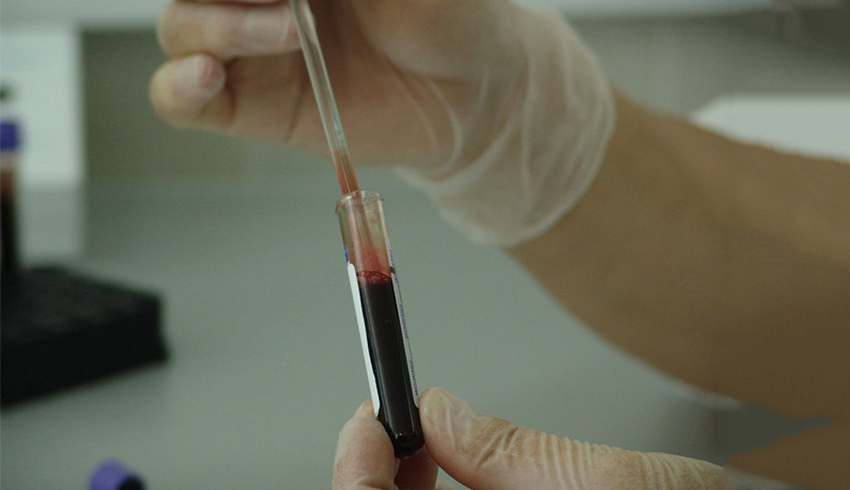Blog
Why an Endocrinology test?

The human endocrine system has a network of glands that produce and release hormones. It helps to control many important body functions, including the body’s ability to change calories into energy that powers cells and organs. The endocrine system influences how your heart beats, how your bones and tissues grow, even your ability to make a baby. It plays a vital role in whether or not you develop diabetes, thyroid disease, growth disorders, sexual dysfunction, and a number of other hormone-related disorders. Hormones regulate metabolism, respiration, growth, reproduction, sensory perception, and movement.
Each gland of the endocrine system releases specific hormones into your bloodstream. These hormones travel through your blood to other cells and help control or coordinate many body processes. The endocrine glands include Adrenal Gland, Hypothalamus, Pineal gland, Pancreas, Parathyroid gland, Thyroid gland, Pituitary gland, Thymus gland, Testes (in males) and ovaries (in females). Even the slightest change with the function of one or more of these glands can bring a delicate balance of hormones in your body and lead to an endocrine disorder, or endocrine disease.
Endocrine disorders are typically grouped into two categories. The endocrine disease that results when a gland produces too much or too little of an endocrine hormone, called a hormone imbalance. Endocrine disease due to the development of lesions (such as nodules or tumors) in the endocrine system, which may or may not affect hormone levels. Increased or decreased levels of endocrine hormone may be caused by a problem with the endocrine feedback system, disease, failure of a gland to stimulate another gland to release hormones, a genetic disorder, such as multiple endocrine neoplasia (MEN) or congenital hypothyroidism, infection, injury to an endocrine gland, and tumor of an endocrine gland.
When you are facing a diagnosis of a hormonal condition, like diabetes or thyroid disease, your doctor may suggest you see an endocrinologist. You may be wondering why you need to see a specialist instead of visiting your primary doctor. Let’s go through some of the reasons which prove why an endocrinologist will provide the level of support and care that you need with this diagnosis. An endocrinologist is a specialist who has thoroughly studied hormonal conditions and knows the best possible treatments, even when conventional treatments do not work well. Unlike a family doctor or general practitioner, an endocrinologist studies hormones and hormonal diseases in-depth, and this specialist will be able to provide the best possible treatment for you. Most general practitioners have the skills necessary to diagnose and treat basic hormonal conditions, but sometimes the help of a specialist is needed like in any case.
R-cell diagnostics and research center, the diagnostic center in Calicut has endocrinologists equipped to treat a range of endocrine disorders and dysfunctions. Many people come to Rcell when their condition is unusual or complex. You may come to Rcell Diagnostics and research center on your own or with a referral from your primary care doctor.
R-cell offers the following endocrinology diagnosis and tests.
- T3
The thyroid produces a hormone called triiodothyronine, known as T3. By measuring the T3 in your blood, your doctor may be able to determine if you have a thyroid problem.
- TSH
TSH stands for thyroid-stimulating hormone. A TSH test is a blood test that measures this hormone. You may need a TSH test if you have symptoms of too much thyroid hormone in your blood (hypothyroidism), or too little thyroid hormone (hypothyroidism).
- T4
Your doctor may order a T4 test if a thyroid-stimulating hormone (TSH) test has come back with abnormal results. A T4 test will help your doctor determine what type of problem is affecting your thyroid.
- FT3
Free tri-iodothyronine (FT3) can assist in determining whether the thyroid is performing properly, and is used mainly to help diagnose hyperthyroidism. This test may also be used for monitoring patients on T3 therapy.
- FT4
Free thyroxine (FT4) aids in the diagnosis of hypothyroidism or hyperthyroidism. The test may also be used to help evaluate a patient with an enlarged thyroid gland, called a goiter.
- PSA
The PSA test is a blood test used primarily to screen for prostate cancer (in men). The test measures the amount of prostate-specific antigen (PSA) in your blood.
- Beta HCG
A beta-human chorionic gonadotropin (HCG) test is a blood test used to diagnose pregnancy and usually becomes positive around the time of the first missed period.
- FSH
Follicle-stimulating hormone (FSH) is an important part of the reproductive system. It’s responsible for the growth of ovarian follicles. Follicles produce estrogen and progesterone in the ovaries and help maintain the menstrual cycles in women. The FSH test measures the level of FSH found in your blood.
- LH
LH test results help a doctor determine whether a male or female has problems with their reproductive system. Doctors also use LH tests to diagnose pituitary gland problems and the early or late onset of puberty.
- Prolactin
A prolactin (PRL) test measures how much of a hormone called prolactin you have in your blood. When women are pregnant or have just given birth, their prolactin levels increase so they can make breast milk.
- Testosterone
One common reason to order this test is either early or delayed puberty (in males). The test may also be necessary if your doctor suspects you may have low hormone levels.
- Vit D3
A vitamin D3 test is used to screen for or monitor bone disorders. It is also sometimes used to check vitamin D3 levels in people with chronic illnesses such as asthma, psoriasis, and certain autoimmune diseases.
- DHEAS
DHEA stands for dehydroepiandrosterone. The DHEA-S test is done to check whether your adrenal glands are working well.
Take your endocrinology tests at Rcell Diagnostics and research center.









